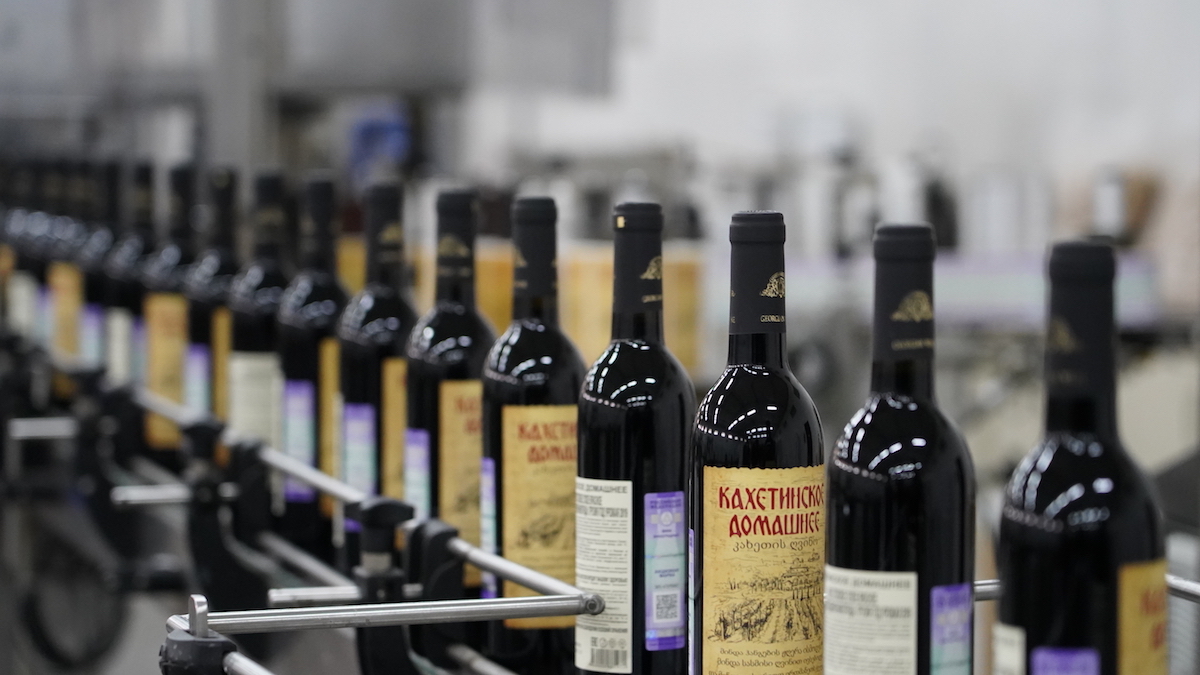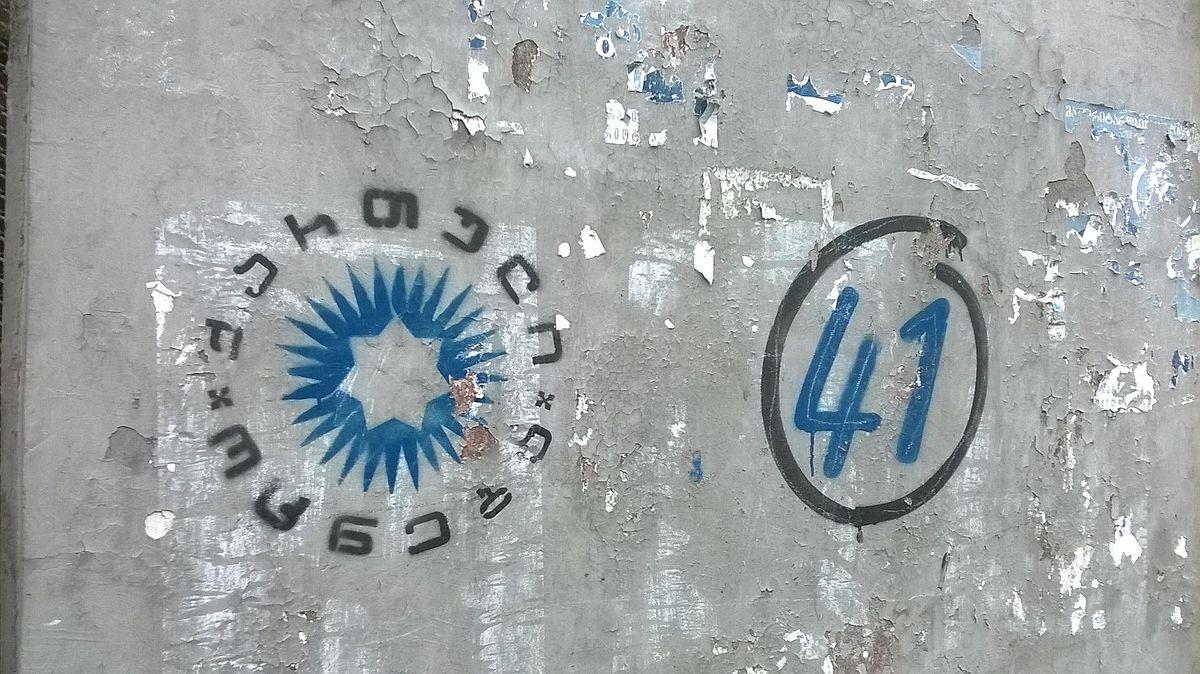What is Georgia selling in Europe? Eight years of the Association Agreement
What Georgia is selling in Europe

By signing the Association Agreement with the European Union in 204, Georgia was exempted from export customs duties.
Around the same period, Russia completely lifted its embargo on Georgian goods, and Georgia more or less restored its former trading position with Russia.
During this period Georgia also began to explore the Chinese market. A new window of opportunity had opened up.
In general, exports to the EU have increased over these eight years, although not as fast as expected after the opening of the EU market. In 2021-2022 there was even a decrease in the share of exports.
In 2007 Georgia exported products worth $269 million to the European Union. In the year before the signing of the Association Agreement, 2013, it was $607 million.
In the eight years since the signing of the agreement, the maximum export to the European Union was seen in 2019 at $835 million.
In 2020–2021 exports dropped to around $700 million due to the pandemic.
In 2022, this figure rose again; at the same pace of growth in January-September, exports to the EU will reach $837 million this year, which will be an eight-year record.
If we take 2013 and 2019 for comparison, we will see that although exports increased from $607 million to $835 million, the share growth was insignificant, from 20.9% to 22%. That is, the share of the EU in total exports has not grown much.
Why were expectations not met?
Why have exports not increased in proportion to expectations, and what opportunities Georgia have if it receives the status of EU candidate country?
Beso Namchavadze, senior analyst at International Transparency Georgia, makes several points.
According to him, the signing of the Association Agreement coincided with a period when, on the one hand, the Russian market had been recovering since 2013, and then since January 2018 the free trade agreement signed with China was fully implemented.
As a result, exports to these countries have increased because neither in Russia nor in China do they check the quality of products as scrupulously as in the European Union. So Georgian entrepreneurs took a simpler and cheaper path and began to favor the Russian and Chinese markets.
“In contrast to the period of 2007-2012, the admission of Georgian products to Russia reduced the incentive for Georgian entrepreneurs to compete for a place in the European market,” Namchavadze says.
Bringing product quality up to European standards is not an easy task.
For example, Georgia still cannot export meat and dairy products to the European market because they still do not meet the standards set by Brussels.
There are many interesting entrepreneurs in Georgia who produce high-quality and good cheese, and foreigners who come to Georgia are very fond of Georgian cheese, though the European market for this product is still closed, Ana Mikadze, president of the Association of Cheese Producers, says.
According to Mikadze, the European Union requires a seven-year procedure for the admission of dairy products to its market, which has not even begun in Georgia yet.
“For three years specialists study the soil, study the product themselves, and in the seventh year they come to the business. The approach to meat products is even stricter, so no progress is expected here in the near future,” Mikadze says.
With herbal products, this problem has already been solved.
For example, the Association Agreement benefits Jahelebi Vines (as opposed to animal products companies). The main export market for his company is the European Union, Zaza Jakeli says. The association agreement has greatly simplified the task and most production will be transferred to the European Union.
“We’ve had this before. But now everything is much better, because partners are exempt [from tax], there is a Euro-1 document (certificate of origin of goods) which we receive,” Jakeli states.
Natural honey is a separate problem. In 2014-2020 honey was exported to the European Union in the amount of $75,000, in 2021 at $507,000, and in January-September 2022 at $584,000, which in total equals $1,166,000. This is very little, but it is worth noting that that amount is 65% of all honey exports.
In total, from 2014 to September 2022, Georgia sold honey for 1 million 775 thousand dollars. One of the main obstacles to the export of Georgian honey is that antibiotics are often used to treat bees, and this is prohibited by EU rules.
What Georgia is selling in Europe
Potential and untapped opportunities
In 2021, the European Union imported $5.9 trillion. Georgia’s share was $717 million or 0.012%.
Obviously, Georgia will not be able to compete with China, the US and the UK, but even moving a comma in a figure is an insurmountable task. At this stage, $7.170 billion exceeds Georgia’s total exports.
Since 1995, Georgia’s trade balance, as with most countries and the European Union, has been consistently in deficit. As imports grew at a slower pace than exports, the deficit narrowed, although the trade deficit remained above 50%.
If in physical terms,exports to the EU and the UK increased by 22% in 2013-2021, then in the same period, the growth rate of exports to Russia exceeded 220%, and to China 1,700%.
The free trade agreement links Georgia with both states. In the case of China, in fact, the country has found a new market. Unlike the European Union, the Chinese do not have special quality requirements.
What do we buy and sell in the EU?
Among the 27 members of the European Union, Bulgaria occupies the first place in terms of exports.
In January-September 2022, products worth $295 million were sold in Bulgaria, more than in Germany, France and Italy combined.
As with China, the main export product to Bulgaria is copper ores. In addition, Bulgaria is the only EU country with which Georgia has a positive trade balance.
As far as imports are concerned, Germany is consistently ranked first.
In the first nine months of this year, $442 million were imported from Germany. The main goods are cars, tools and medicines.
In total, according to data for January-September 2022, 49% of exports to the European Union ($297 million) are of copper ore.
Investments
Unlike foreign trade, foreign direct investment does not follow any clear trend. Indicators grow during the undertaking of specific projects and decrease after their completion. The trend did not change even after the signing of the Association Agreement.
Transit pipelines remain the largest investment in Georgia’s 31 years of independence.
Thanks to BP’s active participation in the construction of pipelines, the UK is the largest investor. In 1996-2021, $3,360,000,000 were invested in Georgia by the UK.
After the UK, the largest investment in the amount of $2,704,000,000 came from the Netherlands. Among non-EU countries, the Netherlands is second only to Azerbaijan ($2,815,000,000).
Despite the lack of EU investment, the share of European investment is larger than the share of exports and has consistently exceeded 40% since 2011.
Tourism and remittances
Georgia is trying to develop tourism, which, along with an increase in the total number of tourists, is also aimed at diversifying them.
Despite the fact that EU citizens could enter Georgia without a visa even before the signing of the Association Agreement, their share in the total number of visitors increased from 3.6% to 6.3% in 2013-2019. In January-October 2022, it rose to 6.5%.
Many entrepreneurs and individuals have benefited from both the Association Agreement and the visa-free regime, although the result still fell short of expectations.
And although neither the Association Agreement nor the visa-free regime introduced in March 2017 gives Georgian citizens the right to legal employment in the EU, thousands of Georgians have still left to work in the EU. The share of remittances from the European Union increased from 27% to 39% in the eight years from 2013 to 2021.
To get full freedom of movement and employment within the EU, Georgia itself must become a member of the EU or part of the Schengen area.
This goal does not even seem to be on the horizon. For the time being, the candidate’s status remains to be sorted out, the assignment of which requires reforms on the part of Tbilisi and the assessment and approval of these reforms on the part of Brussels.
What Georgia is selling in Europe




















